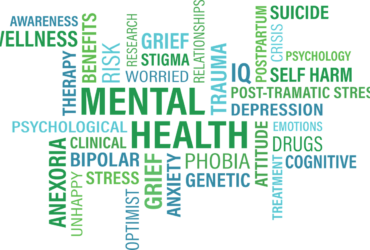From Dress Code to Body Language: How to Avoid Job Interview Blunders
When it comes to landing your dream job, the interview process can be nerve-wracking. From perfecting your resume to researching the company, there’s a lot to prepare for. But even with all the preparation, it’s easy to make small mistakes that can leave a negative impression on your potential employer. One of the most common areas where job candidates go wrong is in their dress code and body language. It’s important to remember that the way you carry yourself and present yourself can speak volumes about your professionalism and attention to detail. In this article, we’ll go over some of the most common interview blunders when it comes to dress code and body language, and provide some simple tips to help you avoid them and ace your next job interview.
The Importance of First Impressions
First impressions matter, and they matter a lot. In fact, research has shown that it takes just seven seconds to make a first impression. This means that you need to make sure that you’re putting your best foot forward from the very beginning of your job interview. One of the most important things to keep in mind is your dress code.
Dress Code for Job Interviews
Dressing appropriately for a job interview is crucial. You want to make sure that you’re dressing in a way that shows your potential employer that you take the job seriously and are professional. It’s also important to pay attention to the details. Make sure your clothes are clean, ironed, and fit well. Avoid wearing anything too flashy or revealing, as this can be distracting and may give off the wrong impression.
Body Language Do’s and Don’ts
Body language is another important aspect of making a good impression during a job interview. Here are some do’s and don’ts to keep in mind:
Do:
- Make eye contact. This shows that you’re confident and engaged.
- This can help put your interviewer at ease and can make you seem more approachable.
- Sit up straight. Good posture can convey confidence and professionalism.
- Use hand gestures. This can help emphasize your points and make you seem more enthusiastic.
Don’t:
- This can make you seem uninterested or lazy.
- Cross your arms. This can make you seem closed off and defensive.
- This can be distracting and may make you seem nervous.
- Avoid eye contact. This can make you seem untrustworthy or disinterested.
Common Job Interview Mistakes to Avoid
In addition to dress code and body language, there are a few other common job interview mistakes to avoid. One of the most important things to keep in mind is to research the company and position beforehand. This will show your potential employer that you’re serious about the job and have taken the time to prepare.
It’s also important to prepare for common job interview questions. This will help you feel more confident and prepared during the interview. Some common questions to prepare for include:
- Tell me about yourself.
- What are your strengths/weaknesses?
- Why do you want to work for this company?
- What are your long-term career goals?
Another mistake to avoid is not practicing mock interviews beforehand. This can help you feel more comfortable during the actual interview and can help you prepare for any unexpected questions.
Following Up After the Interview
Once the interview is over, it’s important to follow up with a thank-you email or note. This can help keep you on top of the mind and can show your potential employer that you’re serious about the job. Make sure to thank them for their time and reiterate why you’re a good fit for the position.
Conclusion
In conclusion, dress code and body language are crucial elements to consider when preparing for a job interview. Remember to dress appropriately for the position you’re applying for and pay attention to the details. Also, make sure to keep your body language in check by making eye contact, smiling, and sitting up straight. Avoid common interview mistakes by preparing for common questions and practicing mock interviews. Finally, don’t forget to follow up after the interview with a thank-you note or email. By keeping these tips in mind, you’ll be well on your way to acing your next job interview.



